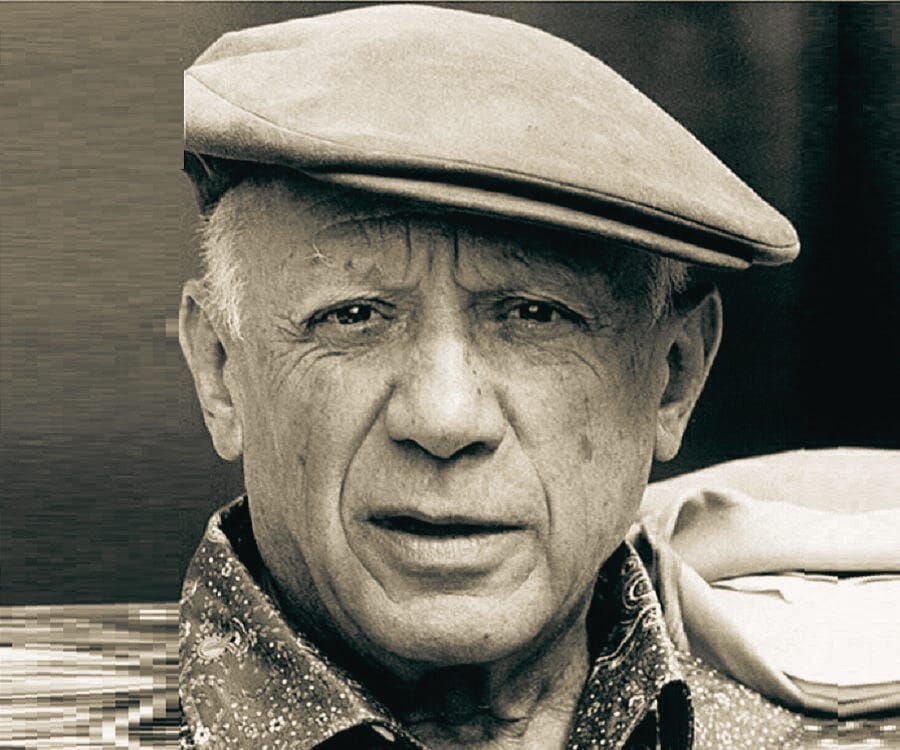
Monday, September 23, 2024
The meaning of life is to find your gift. The purpose of life is to give it away.

This quote, often attributed to Pablo Picasso, encapsulates a profound philosophy about life’s meaning and purpose. The first part of the quote, "The meaning of life is to find your gift," suggests that life is a journey of self-discovery. Each person possesses unique talents, skills, and passions, and part of our role in life is to uncover what makes us special. This discovery process can take time, involving exploration, learning, and personal reflection.
The second part, "The purpose of life is to give it away," highlights the idea that fulfillment comes not from simply identifying these gifts but from sharing them with others. Our talents become meaningful when they are used to make a positive impact on the world. It’s an invitation to live a life of service, creativity, and contribution. The true purpose of life is not in accumulating knowledge or achievements for oneself but in using what we have discovered to help, inspire, or uplift those around us.
Expanded Meaning:
This quote offers readers a dual call to action. First, it encourages them to embark on the path of self-awareness, discovering their own unique abilities, and understanding how they can contribute meaningfully to the world. This journey might involve taking risks, experimenting with new ideas, or stepping outside of one’s comfort zone to find what resonates at a deeper level.
Second, it reminds readers that once they discover these talents, it’s not enough to hold onto them. The true reward lies in sharing those gifts. Whether it’s through creating art, teaching others, volunteering, or simply being present in a way that benefits the community, giving back adds deeper meaning to life.
This perspective challenges the notion of success being solely about personal gain, emphasizing that fulfillment is achieved when we use our gifts for the greater good.
Context and Understanding:
Though this quote is widely attributed to Pablo Picasso, there is no definitive source confirming that he said or wrote it. Picasso, however, is an appropriate figure to associate with such a sentiment, given his life as a prolific artist who continually evolved in his work. His art, from his Blue and Rose Periods to his invention of Cubism, shows a man constantly exploring and redefining his gift. Picasso’s legacy is not just in the art he created but in how he transformed and shared his vision with the world, influencing countless artists and movements.
The quote also resonates with Picasso's approach to life: he believed in relentless creativity and was known for saying that "inspiration exists, but it has to find you working." His life’s work could be seen as a testament to the idea of using one's talents not just for personal achievement but to create a lasting impact on the world.
The phrase itself can be understood in a broader human context, calling on each of us to make our lives not just about discovery but about contribution. It carries a timeless message about how we can live more meaningful and fulfilling lives.
Resource List for Further Exploration:
1. "Picasso: His Life and Art" by Pierre Daix
- A comprehensive biography detailing Picasso's artistic journey, providing context to his creative philosophy and how his life reflects the themes of the quote.
2. "Man’s Search for Meaning" by Viktor E. Frankl
- A seminal work on the pursuit of purpose, offering insights into how finding and giving your gifts can lead to a more meaningful life.
3. "The War of Art" by Steven Pressfield
- A motivational book on overcoming resistance and harnessing creativity, encouraging readers to discover their unique talents and share them with the world.
4. "The Gifts of Imperfection" by Brené Brown
- This book explores vulnerability and embracing one's true self, aligning with the idea of finding and giving your gifts to others.
5. TED Talk: "What Makes a Good Life? Lessons from the Longest Study on Happiness" by Robert Waldinger
- A talk that highlights how deep relationships and contributing to others are key elements of a meaningful and purposeful life.

